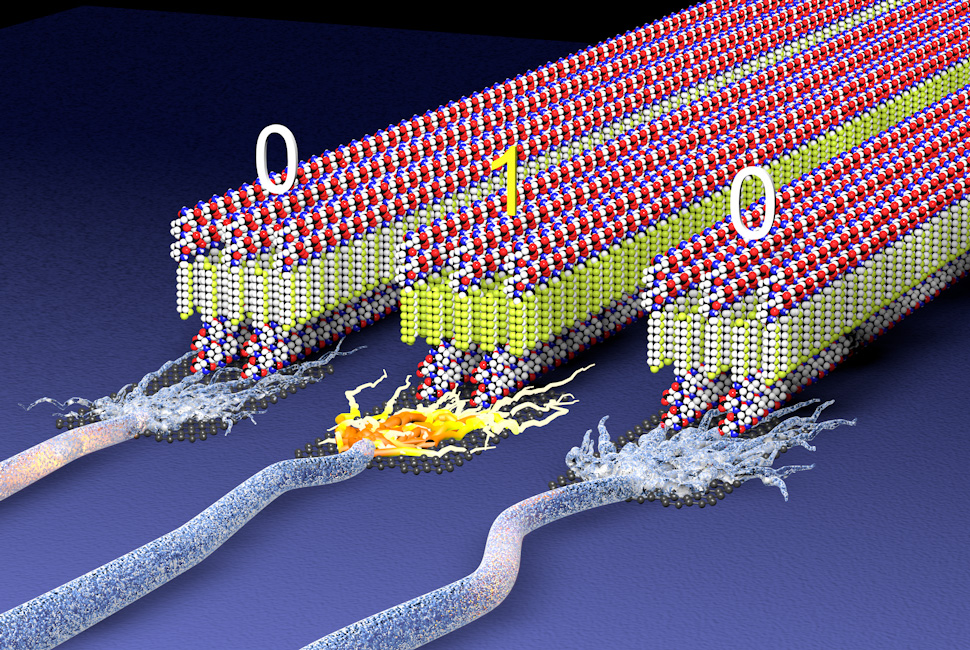Step aside hard, rigid materials. There is a new soft, sustainable electroactive material in town — and it’s poised to open new possibilities for medical devices, wearable technology and human-computer interfaces.
Using peptides and a snippet of the large molecules in plastics, Northwestern University materials scientists have developed materials made of tiny, flexible nano-sized ribbons that can be charged just like a battery to store energy or record digital information. Highly energy efficient, biocompatible and made from sustainable materials, the systems could give rise to new types of ultralight electronic devices while reducing the environmental impact of electronic manufacturing and disposal.

